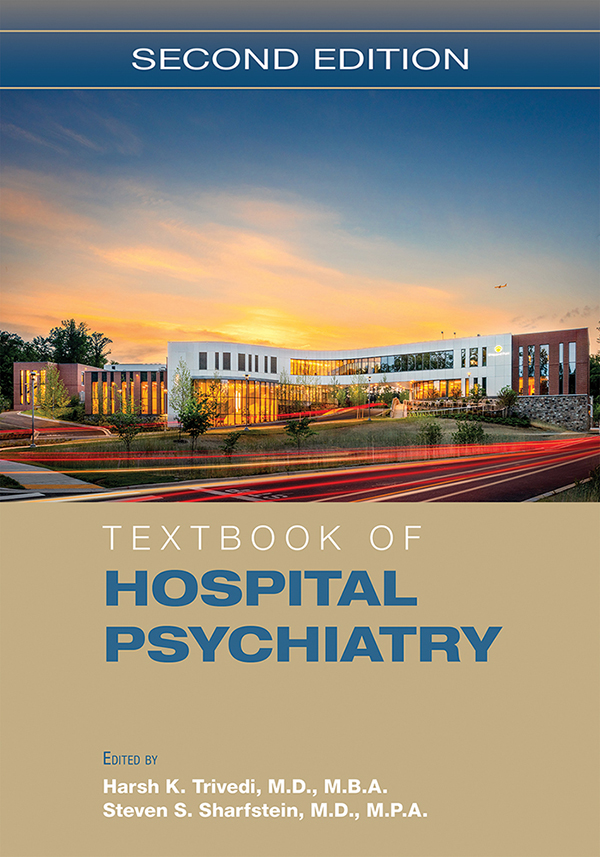Chapter 4. The Adult Crisis Stabilization Unit
Get full access to this content
View all available purchase options and get full access to this content.
Appendix: Approximate Timeline for an Acute Inpatient Psychiatric Hospitalization
| Day 1—Assessment and crisis management | Day 2—Completion of assessment and initiation of focused treatment | Day 3—Continuation of focused treatment | Day 4—Assessment of safety and discharge readiness | Day 5—Discharge with smooth handoff | |
|---|---|---|---|---|---|
| Assessment | Physician: take history, conduct examination, make formulation, order laboratory tests, consultations Nursing: assess safety and other needs Social work: contact outpatient team/collateral informants, determine legal status and resources BEGIN TO DEFINE THE FOCAL PROBLEM: Why admission here, now? | Finalize presumptive diagnosis, evaluate laboratory results Define mental/physical health needs, reevaluate safety Monitor safety, vital signs, sleep, nutrition, self-care Complete assessment of legal issues, living and financial needs CLEARLY DEFINE THE FOCAL PROBLEM | Assess physical health and psychopathology Monitor safety, vital signs, self-care, sleep Review progress toward defined target outcomes | Assess patient safety and physical/mental health Assess adequacy of self-care and support needs Evaluate response of target symptoms and needs Assess extent to which focal problem has been addressed | Carefully assess patient safety Repeat physical and mental examination Repeat structured assessments, including rating scales |
| Treatment | Establish safety and plan for focused intervention Continue outpatient medications as appropriate Implement safety precautions/monitoring as indicated Plan family/network interventions as appropriate Orient patient to the unit Plan individual therapy as feasible and indicated | Initiate new medication treatment and taper off prior medication as appropriate Use as-needed medications for specific target symptoms as appropriate Implement individual and group therapeutic interventions as appropriate Implement family and other network interventions Implement individualized safety and behavioral/cognitive plan | Continue to implement medication plan Continue group therapy Evaluate effectiveness of and response to interventions Continue family and other network interventions as required Implement medication and other patient education | Complete implementation of medication plan Prepare discharge prescriptions Continue to assess response to various interventions Evaluate learned coping strategies Assess patient and family understanding | Review safety plan Review postdischarge plan with patient and family Continue various interventions as appropriate Dispense postdischarge medications with education |
Finalize and begin definitive interventions Define aftercare needs and develop a plan to address them | Finalize and begin definitive interventions | Concretize postdischarge plan | |||
| Discharge planning | Assess follow-up and living arrangements Assess financial stability and need for assistance Assess employment or educational issues Conduct safety evaluation in likely postdischarge setting Assess other specific needs and issues | Address specific postdischarge needs: legal, living, care, fiscal Define approximate length of stay on inpatient unit | Begin to arrange outpatient appointments Identify likely discharge date Coordinate other postdischarge arrangements as necessary | Identify tentative return-to-work/school date and complete necessary paperwork Complete discharge paperwork Confirm appropriate postdischarge living and care arrangements | Reconfirm and document postdischarge follow-up arrangements Complete all aftercare arrangements Review follow-up plan and confirm patient and family understanding |
| DISCHARGE PATIENT | |||||
Information & Authors
Information
Published In
History
Authors
Metrics & Citations
Metrics
Citations
If you have the appropriate software installed, you can download article citation data to the citation manager of your choice. Simply select your manager software from the list below and click Download.
For more information or tips please see 'Downloading to a citation manager' in the Help menu.
View Options
Login options
Already a subscriber? Access your subscription through your login credentials or your institution for full access to this article.
Personal login Institutional Login Open Athens loginNot a subscriber?
PsychiatryOnline subscription options offer access to the DSM-5-TR® library, books, journals, CME, and patient resources. This all-in-one virtual library provides psychiatrists and mental health professionals with key resources for diagnosis, treatment, research, and professional development.
Need more help? PsychiatryOnline Customer Service may be reached by emailing [email protected] or by calling 800-368-5777 (in the U.S.) or 703-907-7322 (outside the U.S.).
